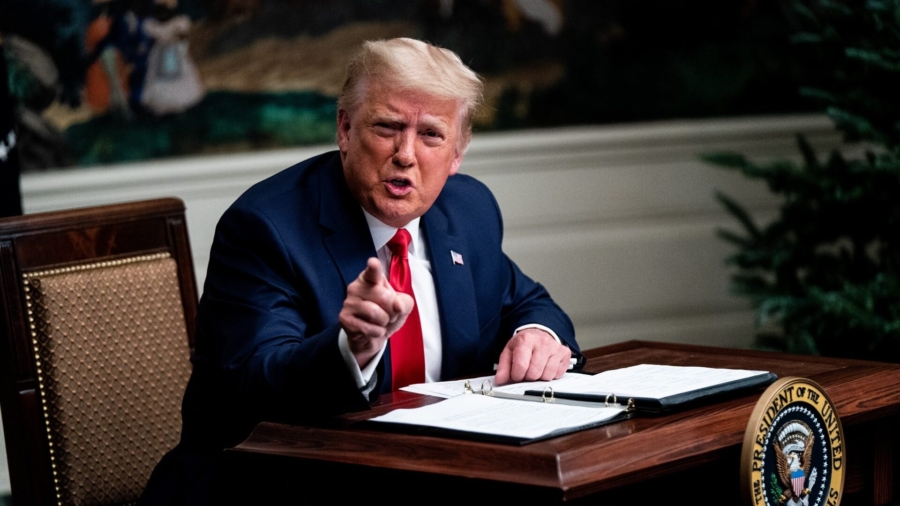President Donald Trump late Tuesday threatened to veto defense legislation unless rules shielding technology companies from most liability lawsuits are changed.
“Section 230, which is a liability shielding gift from the U.S. to ‘Big Tech’ (the only companies in America that have it – corporate welfare!), is a serious threat to our National Security & Election Integrity. Our Country can never be safe & secure if we allow it to stand,” Trump wrote on Twitter.
“Therefore, if the very dangerous & unfair Section 230 is not completely terminated as part of the National Defense Authorization Act (NDAA), I will be forced to unequivocally VETO the Bill when sent to the very beautiful Resolute desk. Take back America NOW. Thank you!” he added.
The NDAA is approved by Congress every year to fund the military.
Democratic lawmakers quickly reacted to Trump’s threat.
“I have written a bipartisan bill to reform Section 230 but the idea that it should be repealed, with no hearing, in the defense bill, is goofy. You will know who is serious about policy making in this space by whether or not they reflexively agree [with] Trump here,” Sen. Brian Schatz (D-Hawaii) wrote on Twitter.
Senate Minority Leader Chuck Schumer (D-N.Y.) added, “Are Senate Republicans still so afraid of the whims of Donald Trump’s Twitter account that they’ll stand with him and hold up a pay raise for our troops?”

Trump has long derided Section 230 of the Communications and Decency Act, which protects social media companies from liability for what their users post.
The act positions providers of “an interactive computer service” from being treated as publishers, a position critics say is increasingly at odds with how tech giants like Twitter and Facebook act in reality.
The companies have ramped up censorship of users, including Trump, in recent months, even hiding some of the president’s posts from the public unless they click a warning label.
Officials from both parties have expressed interest in reforming Section 230 but most of the enthusiasm to do so comes from Republicans, who have been far more targeted by the tech companies.
“Section 230 basically allows social media platforms like Twitter and Facebook to pass on information without legal liability. If a newspaper does something you don’t like, you think they’ve slandered you in a certain way, you can sue them,” Senate Judiciary Chairman Lindsey Graham (R-S.C.) said at a hearing last month that involved Twitter CEO Jack Dorsey and Facebook CEO Mark Zuckerberg.
Tech executives have said they understand the push to alter Section 230 and have put forth their own ideas for how to do so, including requiring moderation processes and practices be published for the public to peruse.
“It’s critical as we consider these solutions, we optimize for new startups and independent developers,” Dorsey told Graham’s committee. “Doing so ensures a level playing field that increases the probability of competing ideas to help solve problems going forward.”
From The Epoch Times


